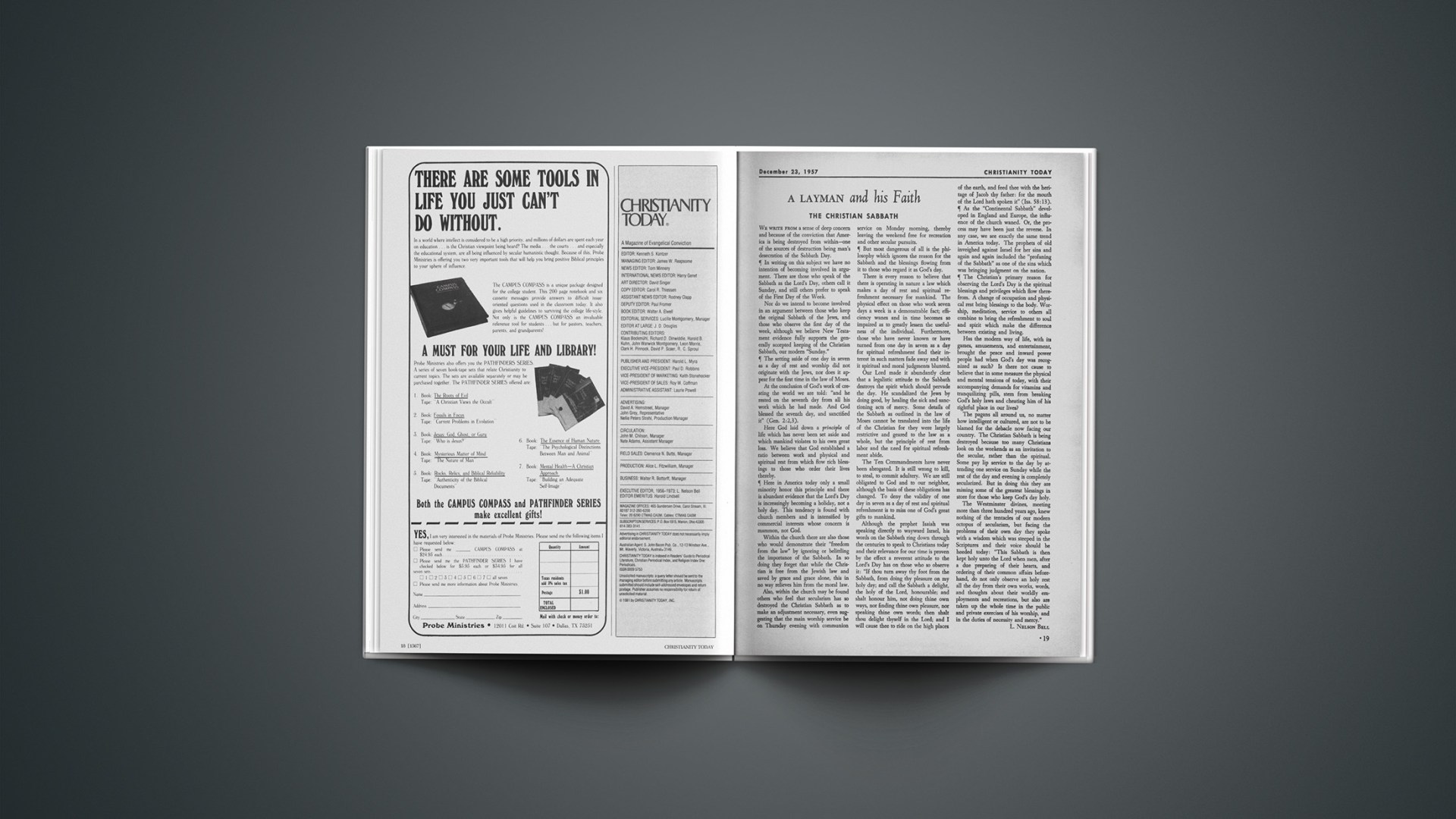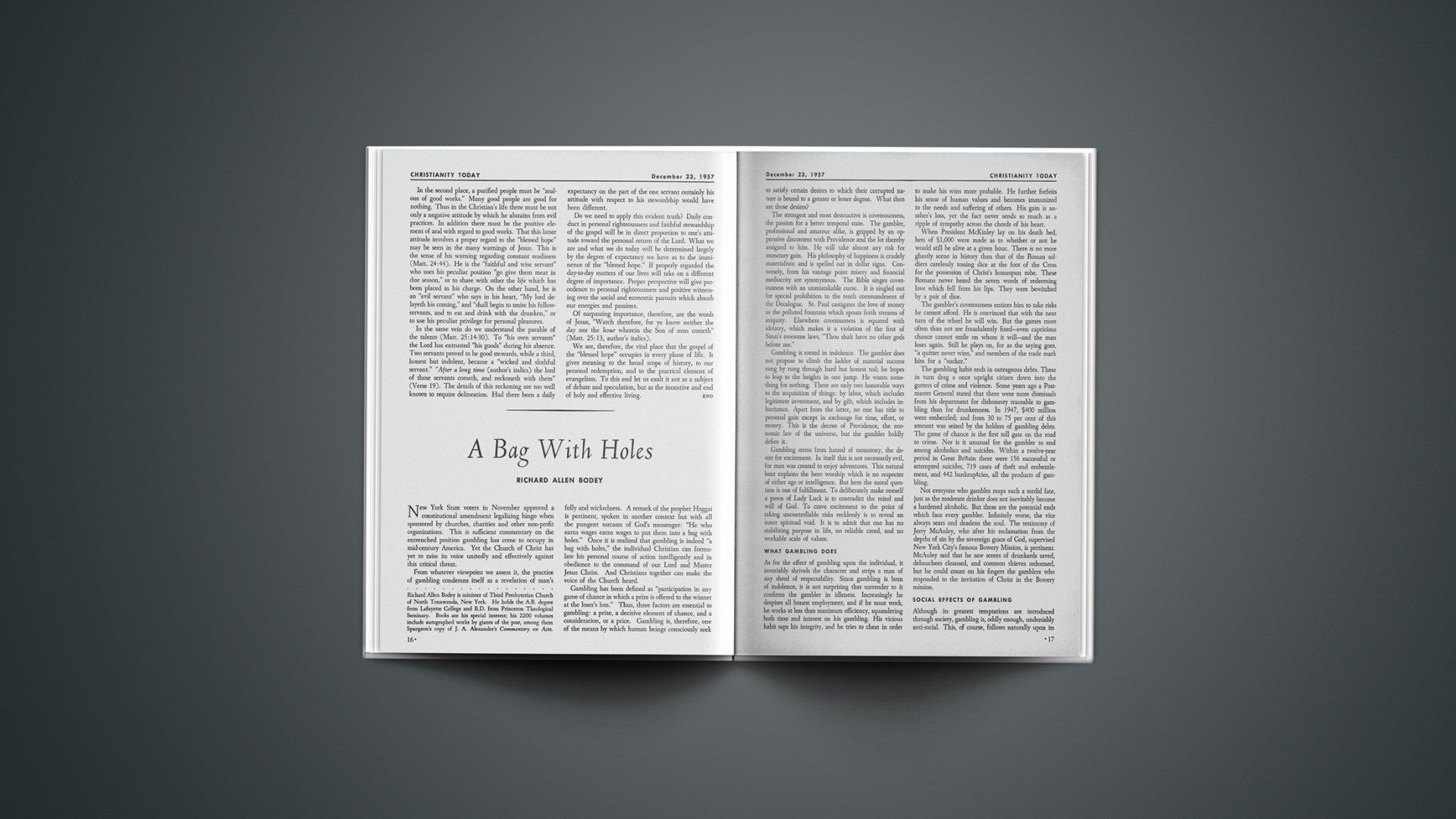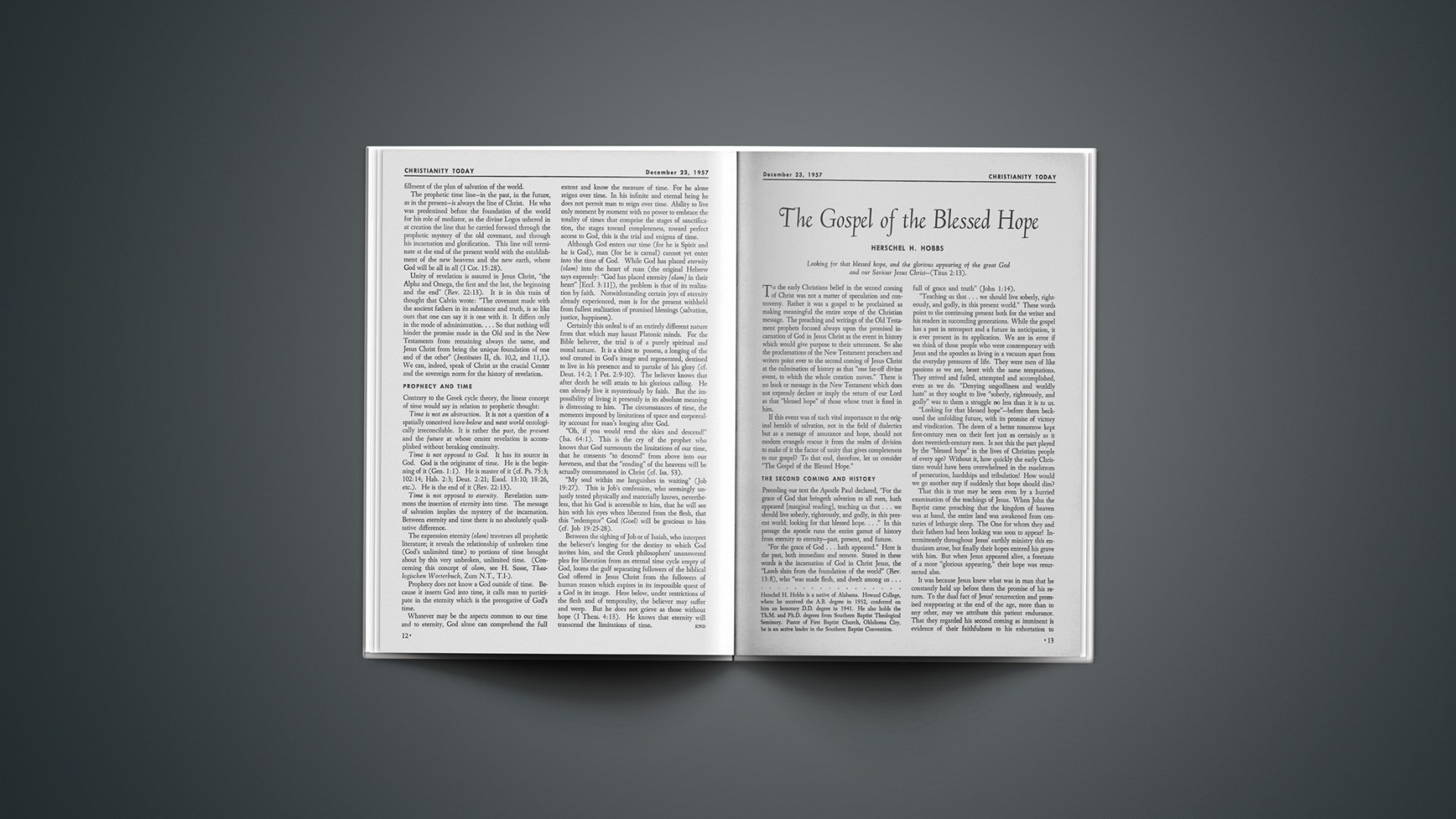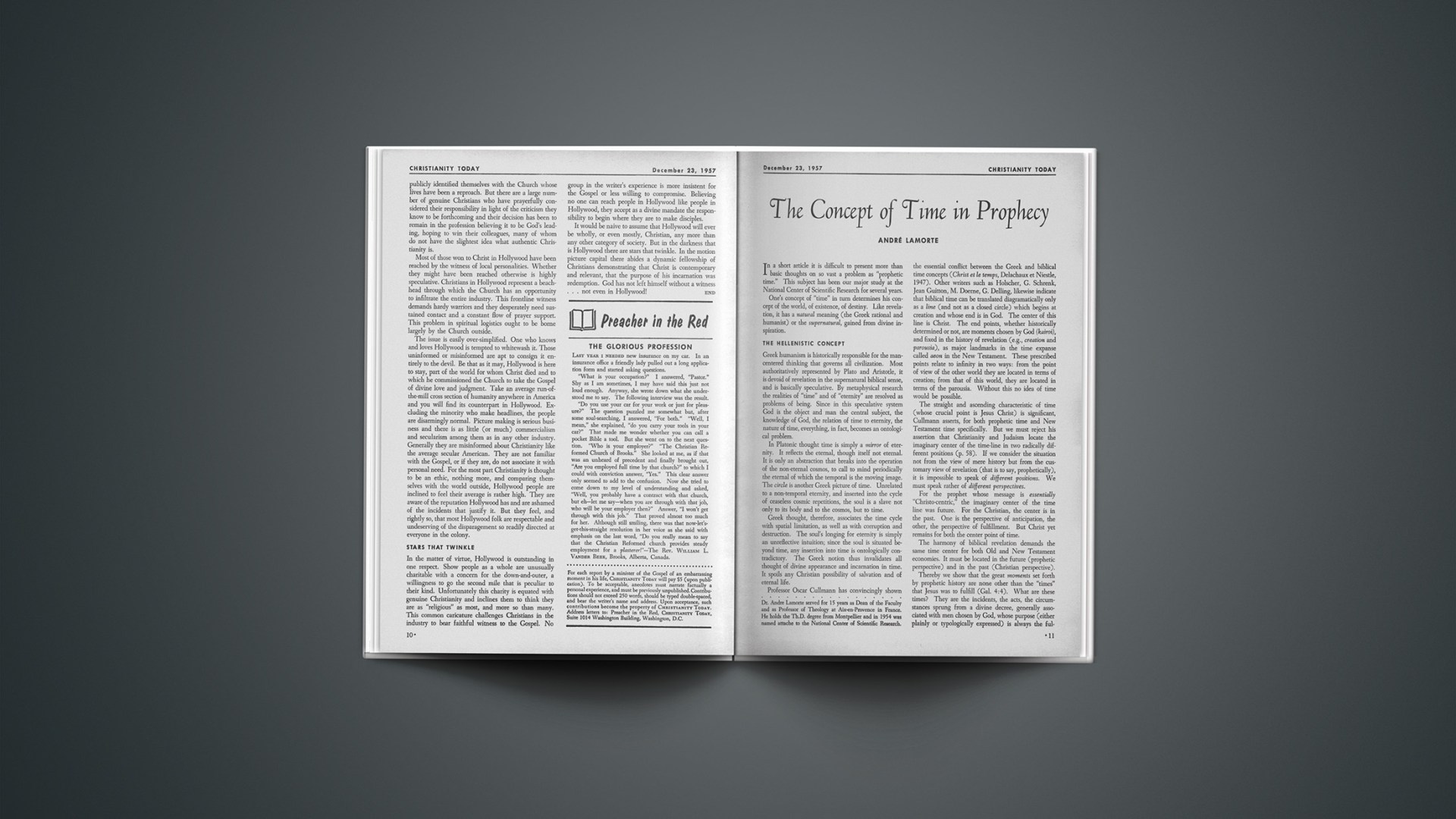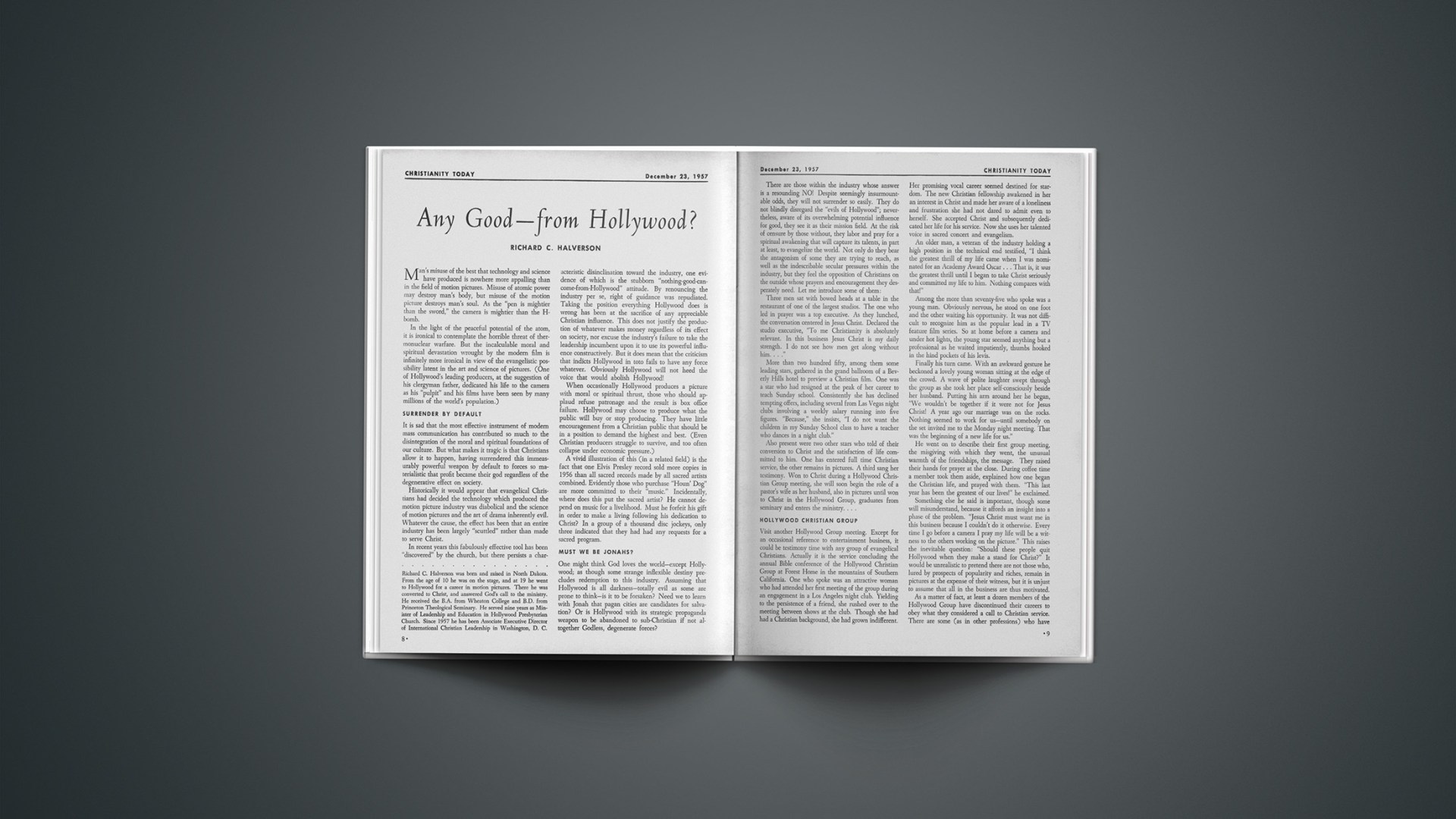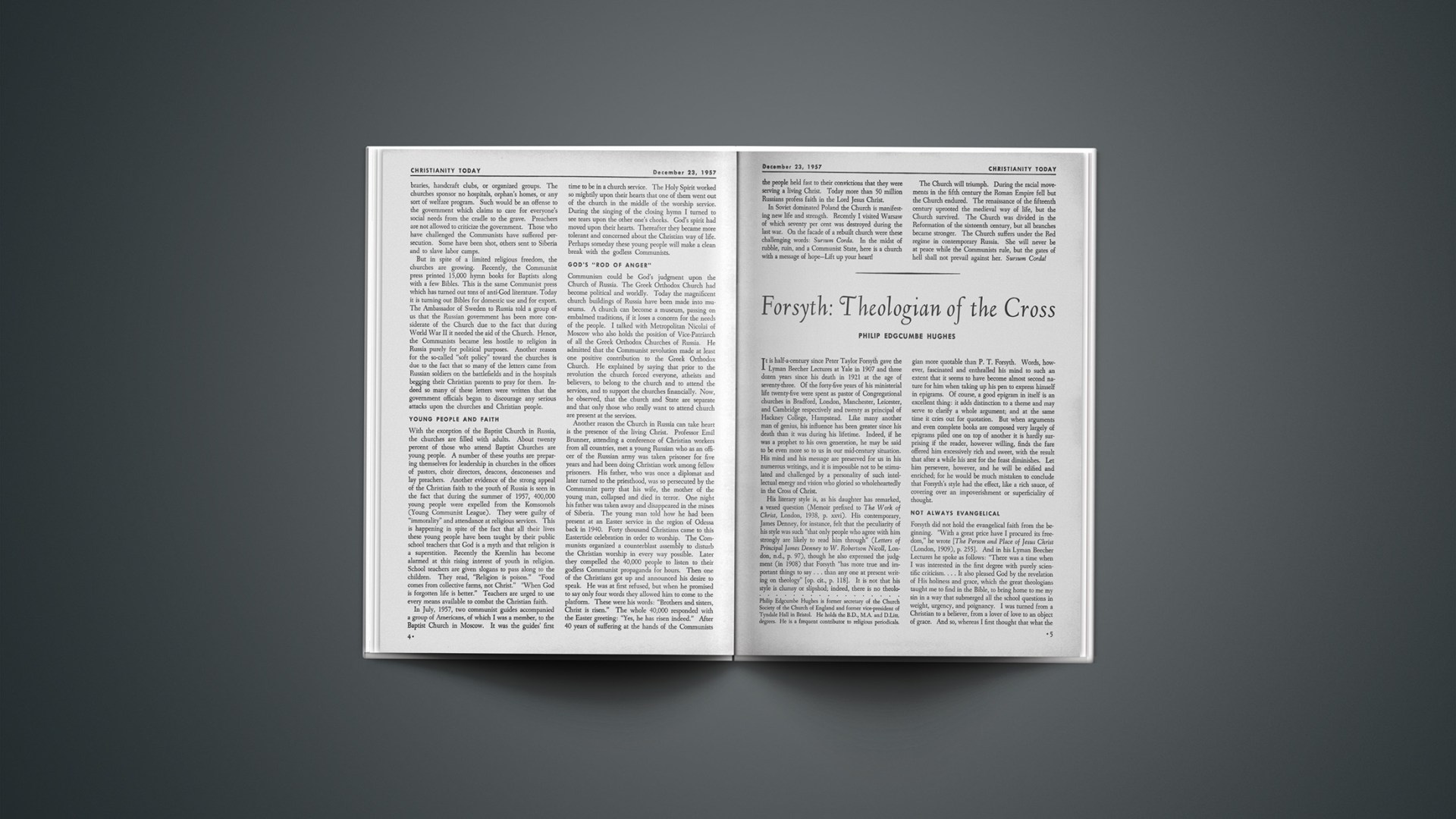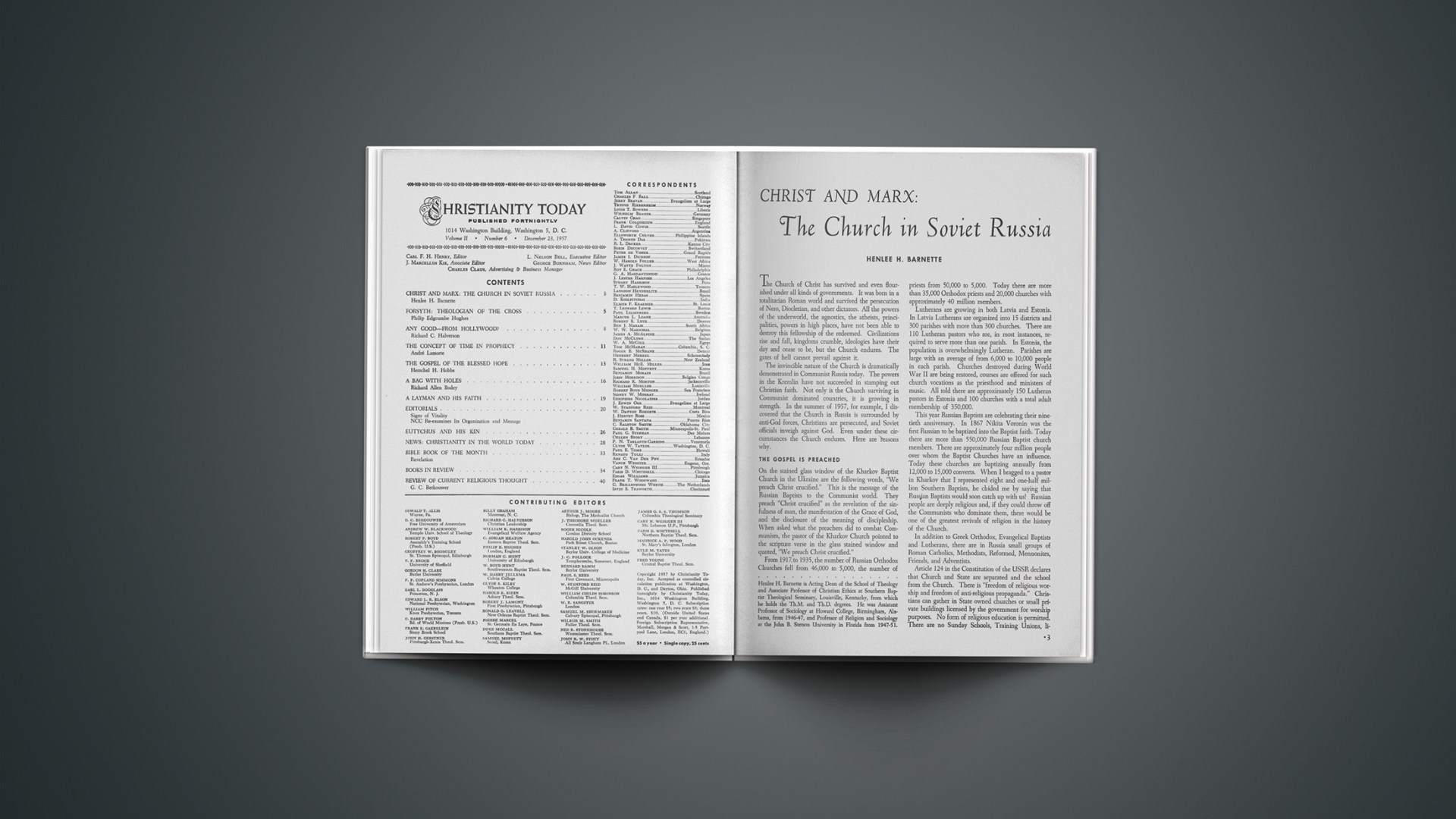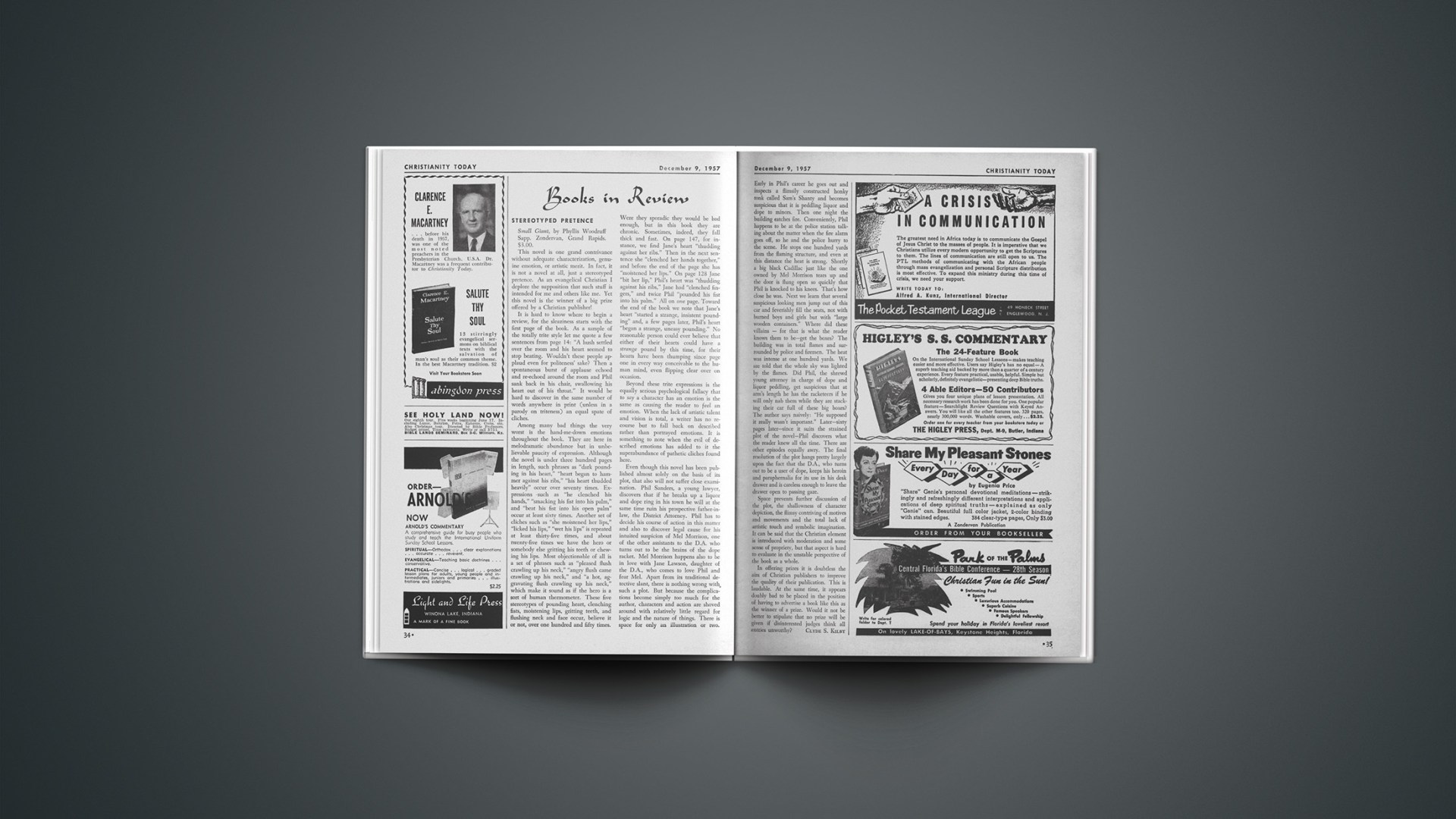We write from a sense of deep concern and because of the conviction that America is being destroyed from within—one of the sources of destruction being man’s desecration of the Sabbath Day.
In writing on this subject we have no intention of becoming involved in argument. There are those who speak of the Sabbath as the Lord’s Day, others call it Sunday, and still others prefer to speak of the First Day of the Week.
Nor do we intend to become involved in an argument between those who keep the original Sabbath of the Jews, and those who observe the first day of the week, although we believe New Testament evidence fully supports the generally accepted keeping of the Christian Sabbath, our modern “Sunday.”
The setting aside of one day in seven as a day of rest and worship did not originate with the Jews, nor does it appear for the first time in the law of Moses.
At the conclusion of God’s work of creating the world we are told: “and he rested on the seventh day from all his work which he had made. And God blessed the seventh day, and sanctified it” (Gen. 2:2, 3).
Here God laid down a principle of life which has never been set aside and which mankind violates to his own great loss. We believe that God established a ratio between work and physical and spiritual rest from which flow rich blessings to those who order their lives thereby.
Here in America today only a small minority honor this principle and there is abundant evidence that the Lord’s Day is increasingly becoming a holiday, not a holy day. This tendency is found with church members and is intensified by commercial interests whose concern is mammon, not God.
Within the church there are also those who would demonstrate their “freedom from the law” by ignoring or belittling the importance of the Sabbath. In so doing they forget that while the Christian is free from the Jewish law and saved by grace and grace alone, this in no way relieves him from the moral law.
Also, within the church may be found others who feel that secularism has so destroyed the Christian Sabbath as to make an adjustment necessary, even suggesting that the main worship service be on Thursday evening with communion service on Monday morning, thereby leaving the weekend free for recreation and other secular pursuits.
But most dangerous of all is the philosophy which ignores the reason for the Sabbath and the blessings flowing from it to those who regard it as God’s day.
There is every reason to believe that there is operating in nature a law which makes a day of rest and spiritual refreshment necessary for mankind. The physical effect on those who work seven days a week is a demonstrable fact; efficiency wanes and in time becomes so impaired as to greatly lessen the usefulness of the individual. Furthermore, those who have never known or have turned from one day in seven as a day for spiritual refreshment find their interest in such matters fade away and with it spiritual and moral judgments blunted.
Our Lord made it abundantly clear that a legalistic attitude to the Sabbath destroys the spirit which should pervade the day. He scandalized the Jews by doing good, by healing the sick and sanctioning acts of mercy. Some details of the Sabbath as outlined in the law of Moses cannot be translated into the life of the Christian for they were largely restrictive and geared to the law as a whole, but the principle of rest from labor and the need for spiritual refreshment abide.
The Ten Commandments have never been abrogated. It is still wrong to kill, to steal, to commit adultery. We are still obligated to God and to our neighbor, although the basis of these obligations has changed. To deny the validity of one day in seven as a day of rest and spiritual refreshment is to miss one of God’s great gifts to mankind.
Although the prophet Isaiah was speaking directly to wayward Israel, his words on the Sabbath ring down through the centuries to speak to Christians today and their relevance for our time is proven by the effect a reverent attitude to the Lord’s Day has on those who so observe it: “If thou turn away thy foot from the Sabbath, from doing thy pleasure on my holy day; and call the Sabbath a delight, the holy of the Lord, honourable; and shalt honour him, not doing thine own ways, nor finding thine own pleasure, nor speaking thine own words; then shalt thou delight thyself in the Lord; and I will cause thee to ride on the high places of the earth, and feed thee with the heritage of Jacob thy father: for the mouth of the Lord hath spoken it” (Isa. 58:13).
As the “Continental Sabbath” developed in England and Europe, the influence of the church waned. Or, the process may have been just the reverse. In any case, we see exactly the same trend in America today. The prophets of old inveighed against Israel for her sins and again and again included the “profaning of the Sabbath” as one of the sins which was bringing judgment on the nation.
The Christian’s primary reason for observing the Lord’s Day is the spiritual blessings and privileges which flow therefrom. A change of occupation and physical rest bring blessings to the body. Worship, meditation, service to others all combine to bring the refreshment to soul and spirit which make the difference between existing and living.
Has the modern way of life, with its games, amusements, and entertainment, brought the peace and inward power people had when God’s day was recognized as such? Is there not cause to believe that in some measure the physical and mental tensions of today, with their accompanying demands for vitamins and tranquilizing pills, stem from breaking God’s holy laws and cheating him of his rightful place in our lives?
The pagans all around us, no matter how intelligent or cultured, are not to be blamed for the debacle now facing our country. The Christian Sabbath is being destroyed because too many Christians look on the weekends as an invitation to the secular, rather than the spiritual. Some pay lip service to the day by attending one service on Sunday while the rest of the day and evening is completely secularized. But in doing this they are missing some of the greatest blessings in store for those who keep God’s day holy.
The Westminster divines, meeting more than three hundred years ago, knew nothing of the tentacles of our modern octopus of secularism, but facing the problems of their own day they spoke with a wisdom which was steeped in the Scriptures and their voice should be heeded today: “This Sabbath is then kept holy unto the Lord when men, after a due preparing of their hearts, and ordering of their common affairs beforehand, do not only observe an holy rest all the day from their own works, words, and thoughts about their worldly employments and recreations, but also are taken up the whole time in the public and private exercises of his worship, and in the duties of necessity and mercy.”

